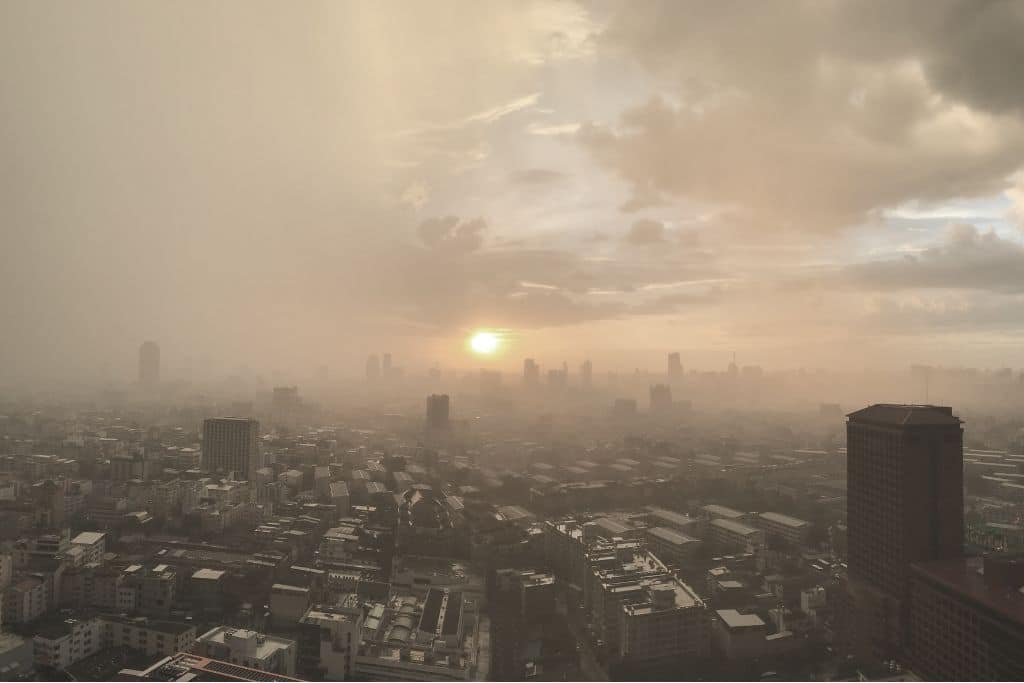South Asia, home to four of the five most polluted countries in the world, accounts for more than half of the total life years lost globally due to air pollution.
—
People living in four South Asian nations – Bangladesh, India, Nepal, and Pakistan – are expected to lose about five years of their lives on average because of air pollution, new data suggests.
According to the annual Air Quality Life Index published Tuesday by the University of Chicago’s Energy Policy Institute (EPIC), particulate pollution in South Asia has increased by 9.7% from 2013 to 2021, contributing to an additional 6 months’ reduction in life expectancy for the region’s residents.
Air pollution is considered a leading risk factor for chronic health issues such as cardiovascular and respiratory diseases, cancers as well as premature death.
A recent study by the World Health Organization (WHO) suggests that air pollution levels exceed safe values almost everywhere in the world, with at least 9 out of 10 people worldwide living in places with low air quality. Globally, fine particulate matter (PM2.5), an atmospheric particulate matter that has a diameter of less than 2.5 micrometers and is said to pose the greatest risk to human health, causes the average person to lose approximately 2.3 years of life expectancy – or a combined 17.8 billion years, according to the latest EPIC report.
People living in Sub-Saharan Africa and South Asia regions are significantly more likely to die from outdoor air pollution, with death rates approximately 100 times greater than in Europe and North America.
The new study blames a series of factors, including a lack of adequate infrastructure and funding for the high levels of pollution in some countries. Most countries in Asia and Africa, which together contribute about 92.7% of life years lost globally due to air pollution, lack key air quality standards needed to develop adequate policies. Moreover, just 6.8% and 3.7% of governments in the two continents, respectively, provide their citizens with fully open-air quality data.
“Timely, reliable, open air quality data in particular can be the backbone of civil society and government clean air efforts—providing the information that people and governments lack and that allows for more informed policy decisions,” argues Christa Hasenkopf, director of AQLI and air quality programs at EPIC.
Air pollution also has a heavy toll on the global economy. A 2020 report by Greenpeace Southeast Asia and the Centre for Research on Energy and Clean Air revealed the human and economic costs of air pollution from fossil fuels. Air pollution-related deaths in 2018 had an estimated economic cost of $2.9 trillion – approximately 3.3% of global GDP.
You might also like: Air Pollution: Have We Reached the Point of No Return?


















